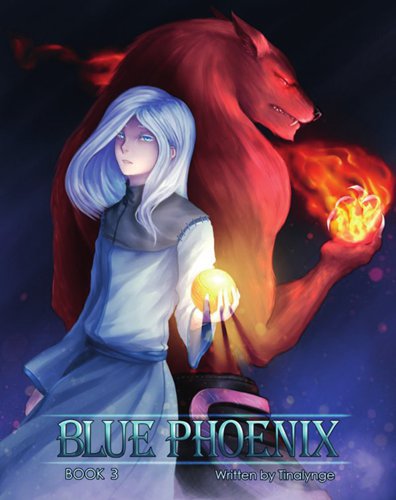
The rapid growth of China's online literature scene has had an influence on some foreign writers, especially in the fantasy genres. Photo: IC
In the summer of 2016, Daman Dasi, a 22-year-old college student majoring in engineering in Istanbul, Turkey, was stuck in his dorm room since his plans were cancelled due to the rain. With nothing to do, he randomly decided to start writing his own story.
It was after reading various Chinese Web novels that have been translated into English, that Dasi started writing his own - The Divine Elements. He did not plan the structure or the plot. He just wrote, ignoring grammar errors and sentence structure.
"My idea was to take some parts of the Chinese Web novels and mix it with a bit of Western fantasy," he said. The novel turned out to be popular. Within the first week, he gained around 500 enthusiastic followers.
The popularity of Chinese online literature, which has grown quickly over last two decades and is an emerging industry promising billions of yuan in profits, is greatly extending overseas and being supported by a dedicated reader and translator community found at sites such as wuxiaworld.com and gravitytales.com.
On May 15, China Reading, China's leading online literature platform, announced the launch of Qidian International, a website and app providing overseas readers access to its 8 million works in more than 200 genres, which is considered a big step for Chinese online literature.
Some foreigners are not content with merely reading; they are creating their own novels inspired by the Chinese Web novels.


Cover of Coiling Dragon, a Chinese Web novel popular among overseas readers, and cover of Blue Phoenix, a Chinese Web novel inspired work by Danish author Tina Lynge Photos: The Internet
Inspiration from the East
In The Divine Elements, an orphan boy is awakened by the element of lightening on his eighth birthday. However, unlike the normal golden lightning of other cultivators, the boy's lightning is azure blue. He embarks on a journey of ascending to godhood, seeking to avenge the death of his family.
The biggest influence Dasi takes from the Chinese novels is the idea of cultivation and the path to becoming an immortal.
"The concept of an immortal hero who ultimately reaches the peak of martial arts (or cultivation) is something very thrilling and exciting to read about," he said.
To veteran readers like Dasi, there is still a lot of specific terminology involved in the xianxia genre, which makes it challenging to write. Xianxia is a type of Chinese martial arts novel genre heavily influenced by Taoism and Buddhism, where people attempt to cultivate to immortality, seeking eternal life and the pinnacle of strength.
"After reading dozens of Web novels related to cultivation, I was fairly familiar with this idea," he said.
Tina Lynge's works also take on the concept of "cultivating" from Chinese Web novels. "Cultivation is not often seen in Western novels, and the way my characters have different levels to increase their strength is also very much Chinese inspired."
Lynge from Denmark is working on the sixth book of her debut series The Blue Phoenix - Ten Courts of Hell (a concept from Chinese mythology), and the final book of the Overthrowing Fate series.
Blue Phoenix, categorized under the genres of action, adventure, martial arts and reincarnation among others, would appeal to Chinese readers who are acquainted with popular Web novels, as those are regularly used elements in stories by Chinese authors.
"I hope my story is a decent 'copy' of Chinese novels since that was my original goal," she said.
Lynge said her writings are inspired by Chinese Web novels to a great extent. She includes figures and gods from Chinese legends, and things from Chinese culture, such as the Four Symbols of China (the four mythological creatures in the Chinese constellations). Among them, the Vermillion Bird of the South plays a special and important role in her story.

The concept of cultivation, where heroes improve their level of power and become immortal, is widely used in Chinese Web novels and has been borrowed by many foreign authors. Photo: IC
A large international readership
Lynge was brought into the world of Chinese Web novels by Coiling Dragon, a novel first released on qidian.com in 2008, which has gained more than 94 million hits. The book, translated into English by a known translator in this genre Ren Woxing and released on wuxiaworld.com, has since become one of the most popular reads on the site.
"I felt that a new and exciting world was expanding in front of me, and I could never get enough of it," she said of the reading experience. Later, she found out about more works translated into English, which she read with great interest.
While reading, she started to imagine her own xianxia world, and her own system of how the heroes can train to the top.
"I spent much time coming up with cultivation techniques or martial arts, and eventually, I couldn't help but start writing my own story," she said.
She said the international readership of Chinese Web novels is huge, and that people enjoy them so much "because of how imaginative and well written they are."
The readership of foreign authors who create works inspired by Chinese novels is also large. There have already been fan fictions, fan art and role plays based on those works.
Over the last three months, Lynge has sold around 9,000 books. But aside from earning money from print books, many authors are supported by readers from Patreon, a crowdfunding platform for content creators to gain support through subscription payments. Readers who support the authors get early access to chapters or access to exclusive chapters.
Coiling Dragon is also Dasi's all time favorite. "It was the story that introduced me to the Web novels, and opened a completely new path for my career and future."
Dasi loves reading English classics, including novels such as The Great Gatsby (1925 novel written by American author F. Scott Fitzgerald) and Heart of Darkness (novella by Polish-British novelist Joseph Conrad), poetry and Shakespeare's works.
However, switching from classics to Web novels is not a step down for him. To Dasi, both the English classics by master writers and translated Chinese Web novels by modern Net users are good literature.
"I was used to analyzing complex text pieces, and looking at the hidden meanings the author was trying to convey through the use of structuring, imagery and so on. [Online literature] was simple, and I enjoy the fast-paced plots," he said. "The world is harsh. People need something to let their mind go free and forget about their real life."
A mix of Western and Chinese fantasy
Cloe D. Frost, 26-year-old game developer, had started writing her novel Aethernea before she discovered Chinese xianxia novels, but later she realized that her novel could fit in that genre, and she tried to include more elements found in Chinese Web novels.
In her novel, the main character learns how to control his awakened powers, defeats his peers in duels and climbs the social ladder.
However, the novel doesn't have the cultivation levels that many readers are used to, and she does not have an aim to copy Chinese Web novels.
"I try to incorporate the things I love and further improve upon them while excluding the things that I dislike," she said.
Among the things she dislikes, Frost finds a majority of Chinese Web novels she has read glorify male characters while slighting females, or introduce unequal, old-fashioned values that she does not agree with.
For instance, she said, it is common to come across the view in Chinese Web novels that any form of physical contact is inappropriate for a female and that losing one's virginity is shameful.
Dasi has adopted a mix of the West and the East too. A Chinese reader would find the plot in the first book of the series, The Blood Legacy, familiar and one that is considered closely related to those found in xianxia works.
But things start to change during the second and third book of the series, where he uses lots of techniques that Western authors use.
"There is a lot of characterization, various sub-plots and multiple stand-points of different characters," he said.
Also, the cultivation in his book is not based on Taoism ways, but more on the concept of mana (supernatural power), where the mages absorb energy from the environment.
Hoping to return to China
Frost attributes the popularity of Chinese Web novels to the love for the concept of magic and super powers shared by people across different countries.
"People like reading about a character rising to prominence and an underdog fighting his way to the top. They can relate to the character," she said.
It's also a shared feeling among the foreign authors to have their works introduced back to Chinese readers.
Dasi wants to know what the people who gave birth to the genre of Web novels would think of his story.
Frost is sure that as China has a well-developed Web novel culture, there might be quite a few Chinese who would enjoy reading Aethernea.
"I would be proud if one day it is translated into Chinese, but I fear that the Chinese might end up laughing at my attempt rather than enjoying it," Lynge said.
Now many of those English novels have been translated into other languages. Lynge's Blue Phoenix has been translated into Russian and Portuguese, but not Chinese yet.
Still, Lynge has confidence in the genre.
"I am sure it will become bigger as time goes on. It has mesmerized so many people with amazing stories," she said. "I do believe [Web novels from China] will be equal to Japanese anime one day. I am certain it will at least be known around the world."
